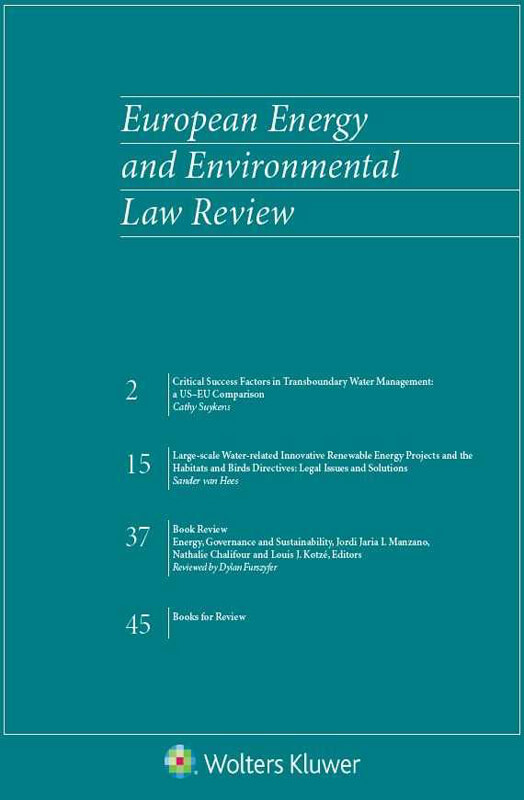Home > All journals > European Energy and Environmental Law Review > 30(2) >

$25.00 - Rental (PDF) *
$49.00 - Article (PDF) *
Topi Turunen, Joonas Alaranta
European Energy and Environmental Law Review
Volume 30, Issue 2 (2021) pp. 51 – 61
https://doi.org/10.54648/eelr2021006
Abstract
The case-law of the Court of Justice of the European Union (CJEU) has had a crucial impact on the development of the EU law. In particular, the role of CJEU case-law has been emphasized in relation to paradigm shifts in the EU. Currently the EU is aiming to transition to a circular economy by 2050. The drive towards a circular economy is based on the recognition that currently the world’s natural resources are used to excess and inefficiently. Waste management and in particular the regulation governing the transformation of waste back into raw materials plays an integral role in the circular economy. This article examines the CJEU case-law on the concept of waste and its implications towards circular economy from 1980s to the modern today. It shows that the case-law has had a crucial role in the development the concept of waste and the rules for excluding secondary materials from it. The article concludes that the CJEU’s powers are emphasized when a regulatory regime is in transition. Moreover, the circular economy regulatory environment is prone to generating numerous preliminary rulings. The importance of reconciling the objectives of the waste, product and chemicals regulation will be emphasized in the future. A natural continuation in the case-law would entail a gradual transition to a single regime for the regulation of materials and their flow. The CJEU could play an important role in the transition to the circular economy.
Keywords
waste, circular economy, Court of Justice of the European Union, transition, secondary raw materials, chemicals, end-of-waste, product safety
Extract
